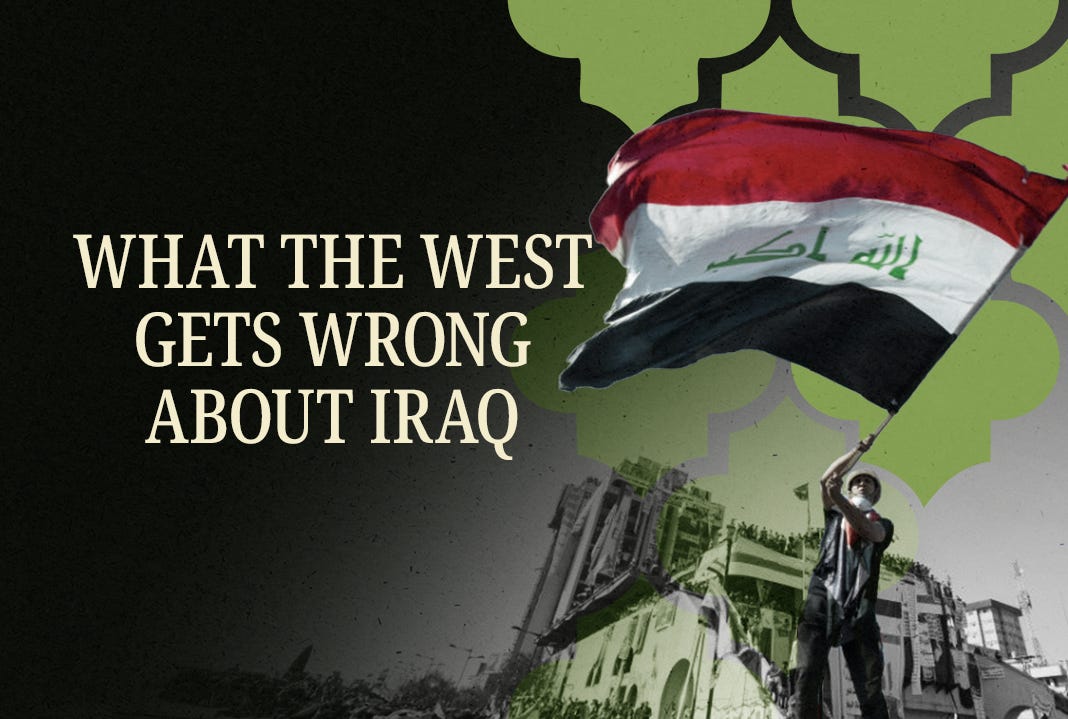What the West Gets Wrong About Iraq
For two decades, global media told one story. Here’s what they’ve missed.
This article was written by Muhi Al Ansari.
Ask the average Westerner about Iraq and you’ll get some version of the same image: ruined cities, armed militias, citizens cowering in fear. The implication is clear—Iraq is a failed state. Dangerous. Unlivable. Headlines, foreign policy briefings, and media narratives rarely reflect the reality on the ground and paint an outdated, flattened picture. And while Iraq still faces serious challenges, the country is also full of movement, creativity, and ambition. Yet these realities rarely make it past our borders, much less into the headlines. Iraq is far more complex—and far more hopeful—than the one the world thinks it knows. So why is our country’s image abroad so warped and disconnected from the lives we actually live?
Because we’ve been spoken for, or over, for more than two decades. The media has trapped an entire nation in a time capsule of war and chaos.
In 2024 alone, Iraq imported over $700 million worth of Japanese cars. Life here is full of motion. Full of color. People crowd Al-Mutanabbi Street until midnight, flipping through books, drinking tea, talking politics. Children go to school. Tourists visit ancient ruins in Ur and Nineveh. Our hospitals are functioning, our universities are publishing, and our cities are alive with art, music, and debate.
But those stories don’t fit the narrative.
Iraq’s post-2003 generation—the young people born after the fall of Saddam Hussein—have only known a country in transition. But they haven’t inherited defeatism. They’ve inherited ambition. And they’re reshaping the future in ways the world isn’t paying attention to.
Young Iraqis aren’t waiting for the government to save them. They’re launching startups, building creative agencies, opening cafés, forming film production companies, and staking out new careers in graphic design, copywriting, public relations, and business development. Nearly everyone I know in their twenties or thirties has a LinkedIn profile and is actively seeking opportunities to thrive, not just survive.
At the same time, civil society is growing. NGOs and grassroots organizations are more active than ever. Women are stepping into new public roles. Conversations around health, human rights, and law are entering mainstream discourse. Iraqi youth are also participating in a fragile but real democratic system—something rare in this region.
This new generation isn’t looking westward for identity. They’re looking inward and forward. They’re preserving Iraq’s architectural heritage—resisting the bland high-rises of global sameness in favor of domes and arches that reflect our cultural depth. They’re embracing digital currencies, building fintech platforms, and slowly moving Iraq into a cashless future.
They’re making room for big ideas—creative spaces, cultural hubs, coworking lofts—places where critical thinking and innovation can thrive. The private sector has given them the freedom to act. And they’re using it.
None of this erases the challenges we face. But it complicates the story. Western media has a moral responsibility here. Its coverage shapes international aid, investment, and foreign policy. It influences how Iraqis are treated abroad. It even affects how we see ourselves.
The dominant image of Iraq as a broken place, defined by violence and dysfunction, is not just inaccurate—it’s harmful. It erases the dignity and determination of millions of people building something better under difficult conditions.
Iraq today defies the narrative that has long defined it in the global imagination. It is not a war zone frozen in time, but a country undergoing uneven but undeniable change—driven by a generation that has only known life after dictatorship. The challenges are real, but so is the progress. If international media continues to rely on outdated tropes, it will miss the most important story unfolding here: Iraqis themselves are shaping their future. It’s time the coverage caught up.
Middle East Uncovered is powered by Ideas Beyond Borders. The views expressed in Middle East Uncovered are those of the authors and do not necessarily reflect the views of Ideas Beyond Borders.





" ... continues to rely on outdated tropes..."
Are the centuries old Islamic sectarian / tribal divisions that seem plagued so many Arab countries now outdated tropes?
How do the Iraqis overcome those?